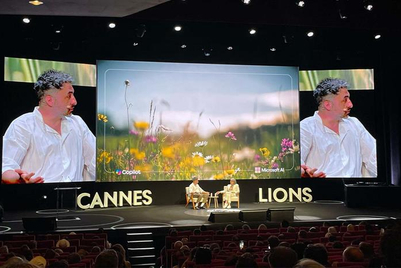
Proceedings began with a session on effective use of branded content, presented by Eric Lee, GM of JWT Singapore, and Sierna Liu, CEO of Filmworks China. The pair noted the value for brands in creating unique entertainment content — either in partnership with media owners or, in a more interesting trend, independently as media properties in their own right.
A separate trend highlighted was that of content creation in conjunction with consumers. Speaking on behalf of Unilever, Neil Trinidad, global marketing director of Pond’s, explained how inviting consumers to create and submit their own videos around set themes offers a new way of engaging with and understanding the target audience. The key message was that brands need to move from the traditional storytelling mindset to “story building” in a way that relates more closely to the people who buy their products.
Ongoing content development was an approach representatives from Dentsu and Hakuhodo Kettle also advocated in their session. Koichiro Shima, CEO of Hakuhodo Kettle, said marketers needed to think of content in “quasi-beta” terms and be prepared to modify it after launch. Yasuharu Sasaki, ECD of Dentsu New York, added that brands should aim to facilitate discovery and discussion of messages online rather than presenting them too directly.
However, in putting forward ideas for discussion, marketers need to think more like editors. That was the message from Alan Dunachie, director of operations for the Economist Group. Linking the brand to a wider debate often proved effective, he said, advising marketers to “give people something to think about that defines you”.
Often talked about, but still largely underwhelming, mobile marketing came in for criticism in a forum session that included F5 Digital founder Gregory Birge and Samsung’s recently appointed regional marketing director of digital and social media, Damien Cummings. Cummings summarised the problem succinctly. Brands, and in particular agencies, continue to think in terms of advertising when approaching the mobile platform when they should be thinking in terms of direct sales and utility in context.
The day conlcuded with a talk from Leo Burnett Malaysia ECD Eric Cruz on the nature of Asian cultural identity and its relevance to marketing. Cruz noted that good design and creativity often served as "a better ambassador than politics or foreign policy", but noted that much of Asia's creative community was not yet expressing itself fully. He invited the audience to consider why "so much of our work is still reflective more of Western values than Asian". "Is your work reflective of who you really are and the culture you work in?" he asked.
The Spikes Asia 2012 festival will run until Tuesday, 18 September.


.jpg&h=334&w=500&q=100&v=20250320&c=1)



.png&h=334&w=500&q=100&v=20250320&c=1)



.png&h=334&w=500&q=100&v=20250320&c=1)





.png&h=268&w=401&q=100&v=20250320&c=1)
.png&h=268&w=401&q=100&v=20250320&c=1)

